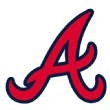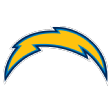Cleveland finally got its trophy. Fifty-two years after the Browns won the 1964 NFL championship, the Cavaliers ended a drought that seemed like it would never end by roaring back from a 3-1 series deficit against the Warriors in the 2016 NBA Finals to bring glory back to Northeast Ohio. By my count, 151 teams representing Cleveland in the four major American professional sports attempted to win a championship during that time span and came back empty-handed. (Save your jokes about the 2016 Browns and their motivations.) You’re familiar with the Browns, Cavaliers and Indians, but it’s a list that includes the Crusaders of the World Hockey Association and the Barons of the NHL, too.
The run of bad luck befalling Ohio’s second-most-populous city seemed to stretch beyond sheer disappointment and variance. Cleveland, it was often said, was cursed. The Red Sox fan in me knows that curses can be broken, but I did start thinking about how long it had taken a Cleveland-based team to win a title. We know that cities usually win titles more frequently than Cleveland, but how frequently? Has any city ever waited longer for a title than Cleveland? And with the Cavaliers finally lifting a trophy after so many years of pain, who takes the city’s place as the continent’s most tortured fan base?
To figure all of this out, I came up with a new, not entirely empirical measure of losing called the Sports Misery Index. Just as no number can ever entirely explain the glee of winning a championship, no metric can ever fully articulate the pain that comes with year after year of losing. That’s reality. All we can do is try to estimate that pain and put it in context, which is where the Misery Index comes in.
The method
One of the problems with figuring out which city has been tormented the longest is that all sports markets aren’t created equal. This isn’t a reflection on fandom or how much a given city cares about its team, but the reality that some cities have more shots at losing (and more chances to get their hopes up) than others. Compare Washington, D.C., and Jacksonville, for example. The Jaguars, Jacksonville’s only professional team, haven’t won a title in their 21 years of existence. That’s hardly out of the ordinary. In Washington, though, there have been teams suiting up in each of the four major sports since the Nationals came to town, and none of those teams has won a title since Washington’s football team won the Super Bowl at the end of the 1991 season. It has been 25 years since a Washington team won a title.
Fans in Washington and Jacksonville have each waited a relatively similar amount of time in terms of years for a title, but Jacksonville’s team is 0-for-21. Washington’s teams are 0-for-84. We need a way to adjudicate for both time and opportunity. The Misery Index scoring system does just that. For each market, the first team to fail to win a title in a given season yields one point. Each subsequent team that comes up short in the same calendar year generates a half-point. So, each year that its respective teams fail to win, Jacksonville receives one point of misery (for the Jags), while Washington receives 2.5 points (one point for its football team and a half-point each for the Wizards, Capitals and Nationals). You keep accruing points until somebody representing your city wins a title.
After finding a scoring system that worked, I went back through 1876 and calculated the Misery Index for every city or market that sent a professional baseball, basketball, football or hockey team out to play. I made a few choices. I included the American Basketball Association, WHA and American Football League but didn’t include any other competitors to the four established major leagues. I left out MLS, college sports and the Canadian Football League, which will come into play. To some extent, that’s a reflection on what those leagues mean in different places: Atlanta might value a Georgia Tech national title in football more than it would have enjoyed a Thrashers Stanley Cup, but New York wouldn’t treat a St. John’s NCAA tournament victory the same as it would the Yankees’ winning the World Series. The Sounders mean significantly more to Seattle than Chivas USA meant to Los Angeles. You get the idea.
I didn’t count partial seasons, and I combined markets where it made sense. Oakland and San Francisco were joined at the hip, but San Jose and Sacramento were separate entities. New Jersey’s teams, as well as all entries past and present from Brooklyn and Long Island, fell under the New York City umbrella. Cities that lost teams before regaining them didn’t pick up any extra points for the years they were without teams, but their counter also picks up from where it previously left off when they get their teams back. I’m also going to talk about teams’ winning their titles during the actual year and time in which they won as opposed to the start of that given season; it’s not as if Cavs fans could start planning for their parade back in October.
That’s enough preamble. Let’s start with this: Using the Misery Index, which city had to endure the most pain before winning a title?
All-time misery before winning
1. Cleveland (100.5 points)
 1965 to 2016
1965 to 2016
As it turns out, our suspicions were right: No city has suffered longer in American professional sports before winning a title than Cleveland. It lapped the field, actually. Not only is Cleveland the only city since 1876 to make it over 100 points, but it could have won a title back in 2008 and still held the record for most miserable run of luck. It really hasn’t looked good for Cleveland for a while, either: Of the 20 teams to take the field before this successful Cavs run, just three even made the playoffs, let alone sniffed a title. All that suffering, thankfully, is over. If Cleveland endures a similar sort of run with its three teams, it won’t win another title until 2066. It probably won’t even be able to rely upon LeBron James then.
There are two active cities that would slot in here at two and three for longest waits, but I’ll get to them in a minute. In terms of cities that have had to wait before actually finding glory, here’s the rest of the top five:
2. Seattle (66 points)
1979 to 2014
Like Cleveland, Seattle had to endure the pain of losing a team along the way to its return. That team, of course, was the one that delivered Seattle’s only title for nearly 35 years. The 1978-79 SuperSonics were the first Seattle team to win a major title since the Metropolitans of the Pacific Coast Hockey League won the Stanley Cup in 1917. After the SuperSonics won in June 1979, Seattle laid dormant until the Seahawks blew out the Broncos in Super Bowl XLVIII on Feb. 3, 2014. Ninety-eight Seattle teams during that time came up short.
3. Chicago (65 points)
 1964 to 1986
1964 to 1986
Thank god for the Bears, who held up their end of the bargain by winning an NFL championship at the end of the 1963 season before the Super Bowl Shuffle Bears won their first Super Bowl by stomping the Patriots early in 1986. Chicago sent 110 teams up to bat in the meantime. I suppose this is a weakness of the way we’re measuring Misery given that we’re counting both the Cubs and White Sox and most fans in Chicago pick one or the other, but 22 years is a long time by anyone’s definition. Of course, those days are long gone for the Windy City now: Chicago hasn’t posted a Misery Index higher than 21.5 since then, thanks to Michael Jordan and Patrick Kane, and their current score of 3 might very well be reset by the Cubs this fall.
4. Philadelphia (62.5 points)
 1983 to 2008
1983 to 2008
Although Philly delivered plenty of competitive and compelling teams during that 25-year span, nobody for a quarter century followed Julius Erving and Moses Malone and their NBA title from the 1982-83 season with a championship. (The Philadelphia Stars did win a USFL championship during their two years in Philly, but given the general transience of USFL teams in their given cities, we’re not including the USFL in this analysis.) The Phillies had just won a title in 1980, so you could have forgiven the famously friendly fans in Philadelphia if they expected to see regular championships, but it took the same Phillies to win the World Series and bring a title back to Philly. Here’s how you know it took a long time: Jamie Moyer, who was a starter on that World Series winner in 2008, was still at Saint Joseph’s and a year from being drafted when the Sixers swept the Lakers in 1983.
5. Atlanta (61.5 points)
 1966 to 1995
1966 to 1995
Atlanta didn’t actually win any titles in 1966, but it did gain its first two professional teams across the four major leagues, thanks to the Braves’ move from Milwaukee and the Falcons’ debut as an expansion team. The Hawks followed in 1968 and the Flames made a brief stop in town, but it took 94 tries before the Braves gave Atlanta its first title when they won the 1995 World Series. It’s also the city’s only championship, as it narrowly misses out on our list of the five cities currently among the most tortured in North American sports. If we assume that the Braves don’t win the World Series this season — and if they do, start preparing for the apocalypse — Atlanta will have accrued 47.5 more points in the Misery Index, leaving it in sixth place on the current list.
Active misery streaks
Let’s flip the order and look at the post-Cavaliers landscape. Cleveland’s meter has been reset to zero, but what about the rest of North America? Which city inherits Cleveland’s title as the most tormented in professional sports? The answer might surprise you.
Honorable mention: Milwaukee
 I have to mention Milwaukee, which represented one of the stickier situations on this list. If you limit Milwaukee to the two teams that play in or near the city — the Brewers and Bucks — it would comfortably qualify for this list in third, given that the last champion out of Milwaukee would be the 1970-71 Bucks. Milwaukee has accrued 67.5 points in the meantime. The complicating factor is the presence of the Packers in Green Bay. Milwaukee is a little less than two hours from Green Bay and a similar distance from Chicago, so it seems unfair to automatically assign Green Bay to the Milwaukee market on a geographical level.
I have to mention Milwaukee, which represented one of the stickier situations on this list. If you limit Milwaukee to the two teams that play in or near the city — the Brewers and Bucks — it would comfortably qualify for this list in third, given that the last champion out of Milwaukee would be the 1970-71 Bucks. Milwaukee has accrued 67.5 points in the meantime. The complicating factor is the presence of the Packers in Green Bay. Milwaukee is a little less than two hours from Green Bay and a similar distance from Chicago, so it seems unfair to automatically assign Green Bay to the Milwaukee market on a geographical level.
At the same time, though, my Milwaukee sources tell me that there are far more Packers fans in the city than there are Bears fans. And because we’re trying to gauge suffering in a given city, it’s likely that most denizens of Milwaukee celebrated when the Packers won the Super Bowl in February 1997 and again in 2011. Including the Packers drops Milwaukee’s Misery Index down to 10.5, which barely counts for even a tiny murmur of discontent. With that in mind, it doesn’t make this list.
5. Vancouver (49 points)
 Last title: never
Last title: never
This is a controversial selection because we’re limiting Vancouver to the Canucks and its brief run with the Grizzlies. Vancouver doesn’t have an NFL team, but the BC Lions play in the Canadian Football League and have won six Grey Cups, most recently in 2011. I suspect that Vancouver might not be quite as frustrated as its numbers suggest because of that, but by the rules of the Misery Index, Vancouver fans are still waiting for their first title in American professional sports. The Canucks are 0-for-45 since entering the NHL in 1971, and the Grizzlies failed to even make the playoffs during their six seasons of existence before moving to Memphis. The curse of Steve Francis?
4. Washington, D.C. (54 points)
 Last title: NFL team, 1991
Last title: NFL team, 1991
D.C. is crying out for a title already! As I mentioned earlier, the District’s four teams have failed in each of their past 84 tries to win a championship. It really hasn’t been very close, either. Just one of those teams — the 1997-98 “Godzilla” Capitals — made it to the finals of their respective competitions, and those Capitals were swept in four games by the Red Wings. FanGraphs gives the Nationals a 9.9 percent chance of winning the World Series; could they be D.C.’s best hope over the next few years?
3. Minneapolis/St. Paul (58 points)
 Last title: Twins, 1991
Last title: Twins, 1991
I didn’t count any points for teams participating in the 2016 MLB season, but given that the Twins have the league’s worst record at 23-49 and have a 0.0 percent shot of even making the playoffs per FanGraphs, it seems safe to suggest that Minneapolis will make it up to 58.5 points this fall. Minnesota hasn’t even made a single trip to the finals in any sport over this time frame, with the Vikings failing three times as favorites in the NFC Championship Game, with two overtime losses and a 41-0 shellacking at the hands of the Giants in 2001. And this doesn’t even include any additional points for that breathtakingly painful defeat against Seattle in the playoffs last season.
It’s rough out there for Minnesotans, but there’s still a comfortable gap between Minneapolis in the third spot and the two teams at the top of this list, which are on the second- and third-longest stretches of futility in American professional sports history. Even worse, neither of them seems particularly close to claiming a title of its own any time soon …
2. Buffalo (76.5 points)
 Last title: Bills, 1965
Last title: Bills, 1965
It has been more than 50 years since the denizens of Buffalo, who faithfully cheer on the Bills and Sabres with precious little in the way of hope, have celebrated a title. The Bills haven’t made the playoffs since the Music City Miracle in 1999, while the Sabres are rebuilding and have missed out on the postseason in each of the past five seasons. The last time the Sabres made the finals, 1999, they were pushed aside by the Stars in controversial fashion; they haven’t as much as won a playoff series since 2007. Buffalo teams have made the playoffs just five times in their past 30 tries. Boston, in contrast, has produced 22 playoff teams in its past 30 attempts. There are exciting young stars in Buffalo — Sammy Watkins! Jack Eichel! — but it still feels like we’re far away from seeing a Buffalo franchise compete for a championship. It’s disappointing, too: Buffalo’s celebration upon winning its first title in a half century might even put Cleveland’s to shame.
1. San Diego (83.5 points)
 Last title: Chargers, 1963
Last title: Chargers, 1963
And then, rising above (or below) the fray, it’s … San Diego? Indeed, it’s San Diego and its tan, Teva-ed denizens who inherit Cleveland’s title as the longest-suffering fans in sports. With the Padres in last place in the NL West and already listed with a 0.0 percent chance of making the playoffs, this number will rise to 84 shortly. The Chargers finished 4-12 and might not even be in town next year. And the Clippers, Mariners, Conquistadors and Rockets have all come and gone without delivering a title.
San Diego’s last title came on Jan. 5, 1964, 44 days after the assassination of John F. Kennedy, in a league that hasn’t existed for 46 years. The Padres have made the World Series twice and lost eight of their nine games. They blew an 8-6 lead in the 13th inning of a play-in game in 2007. In the Chargers’ lone trip to the Super Bowl, they went down 14-0 within the first five minutes and were blown out by 23 points. Just in the past 15 years alone, they lost one playoff game where their legendarily accurate kicker missed three field goals and another when their safety fumbled away an interception with an eight-point lead and six minutes to go. This city has experienced trauma.
And yet, there’s something undeniably weird about suggesting that San Diego fans are long-suffering. When we think of heartbroken cities, we almost always think of frigid cities that are past their economic prime. We think of Cleveland and Boston, of Buffalo and Minneapolis. The idea of fans suffering in perennially gorgeous weather by the beach feels wrong, like there’s something inherently more meaningful about losing when you have to trod back home and shovel snow for six hours.
There’s not. San Diego fans have suffered for 53 years while barely sniffing a title; there are grandfathers who have spent their entire lives in San Diego rooting for local teams without ever feeling for a moment like they’re close to winning a championship. That’s every bit as depressing as it must have been for Cleveland fans during their dry spell, and with the late-’80s Browns, the mid-’90s Indians and the two eras of LeBron, you can argue that they had much better teams and players to support.
Exit Cleveland. Enter San Diego, now the most tortured sports city in North America.




